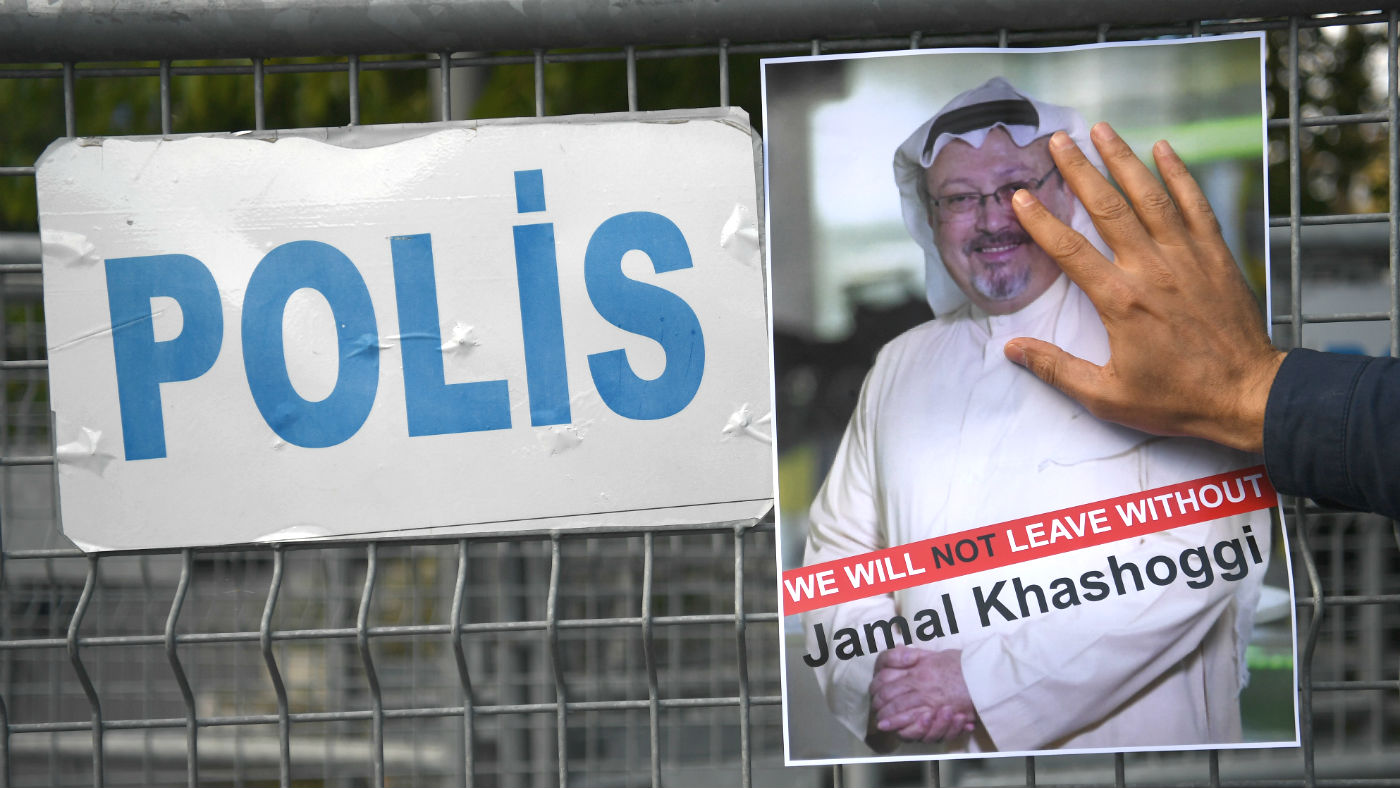Why is Saudi Arabia paying off Khashoggi’s children?
Luxurious houses and large monthly payments part of an effort to discourage criticism of Saudi government

A free daily email with the biggest news stories of the day – and the best features from TheWeek.com
You are now subscribed
Your newsletter sign-up was successful
The children of murdered journalist Jamal Khashoggi are reportedly receiving huge pay-offs from the Saudi government in a bid to keep them from criticising the regime which is believed to have ordered his death.
According to the Washington Post, Khashoggi’s four children have received luxurious houses worth around £3 million and get monthly payments of more than $10,000 each.
Eleven people are currently on trial accused of killing Khashoggi at the Saudi consulate in Istanbul last October, however there is widespread international agreement, backed up by the CIA and United Nations, that it was ordered by Crown Prince Mohammed bin Salman.
The Week
Escape your echo chamber. Get the facts behind the news, plus analysis from multiple perspectives.

Sign up for The Week's Free Newsletters
From our morning news briefing to a weekly Good News Newsletter, get the best of The Week delivered directly to your inbox.
From our morning news briefing to a weekly Good News Newsletter, get the best of The Week delivered directly to your inbox.
Saudi officials have denied the houses or payments were designed to buy the Khashoggis’ silence and said that it was a normal practice for the kingdom to support any citizens who had been through a tragedy.
However, the Post reports the payments “are part of an effort by Saudi Arabia to reach a long-term arrangement with Khashoggi family members, aimed in part at ensuring that they continue to show restraint in their public statements”.
It appears to be working. “The four children have so far refrained from criticising the crown prince,” says Vice “and have said little publicly about their father’s death”.
In an opinion piece for the Washington Post last November, Norah and Razan Khashoggi wrote while their father “grieved for the home he had left”, he “never abandoned hope for his country”.
A free daily email with the biggest news stories of the day – and the best features from TheWeek.com
He was “no dissident”, they wrote, in an essay which did not address who killed Khashoggi.
The Daily Telegraph says “the children may be in line for even larger payouts after the trial of some of Khashoggi’s suspected killers [as] Saudi Arabia retains a culture of ‘blood money’ payments where the families of convicted killers make payments to the families of victims”.
Negotiations over further payments have been led by Khalid bin Salman, the brother of Crown Prince Mohammed bin Salman, and are expected to be concluded following the trials of Khashoggi's accused killers, five of which could face the death penalty if found guilty.
While it is not clear whether the family would have to pardon the killers to get the money, “such an agreement could also close the case under Saudi law, without Prince Mohammed or senior aides believed to be involved in the killing, facing a trial”, reports Al Jazeera.
Aidan White, president of the UK-based Ethical Journalism Network, described the initial payments to Khashoggi's children as one of a “variety of methods by Saudi Arabia to avoid taking responsibility” for his murder.
Saudi authorities were also “applying secrecy in the trial process” and ignoring international standards of justice, he said.
“The elephant in the room is the United States’ failure to stand up alongside other democratic governments condemning what has happened in the Khashoggi case and demanding the Saudi government be more open and respect international standards of justice,” he added referring to US President Donald Trump’s continued support for Saudi Arabia and the crown prince.